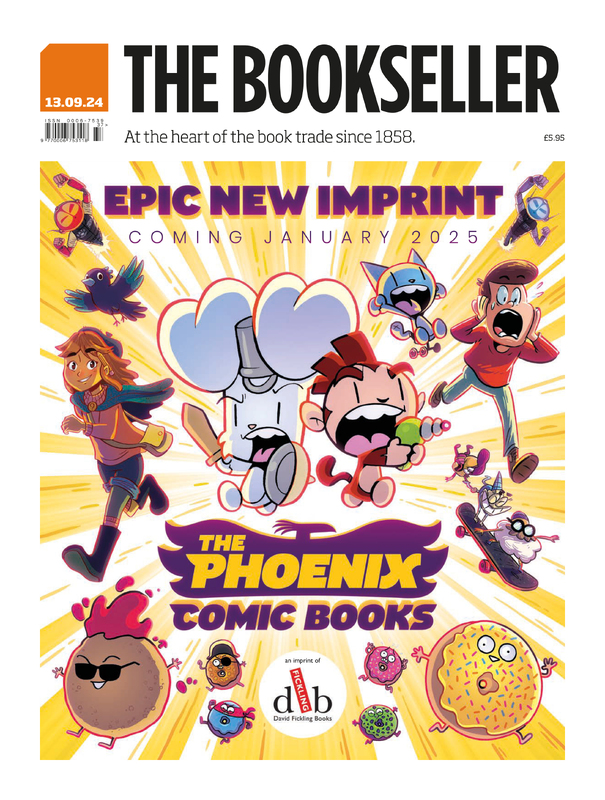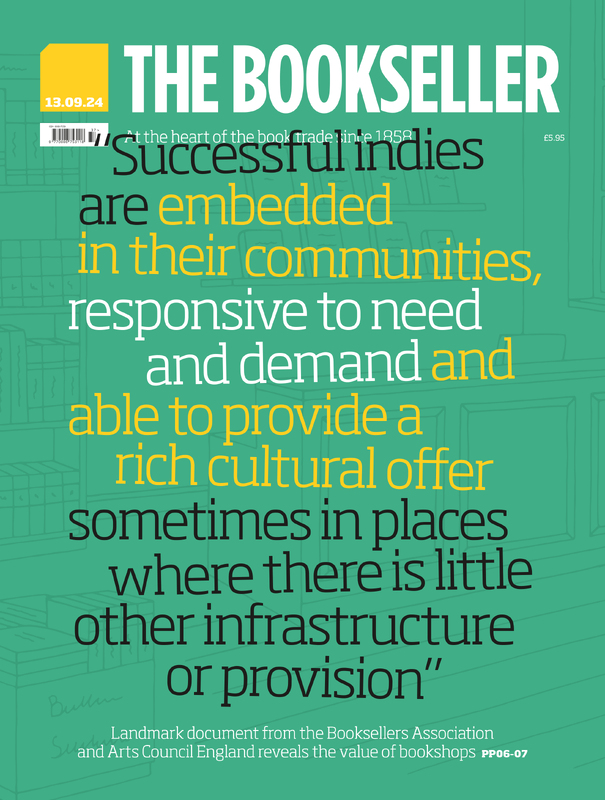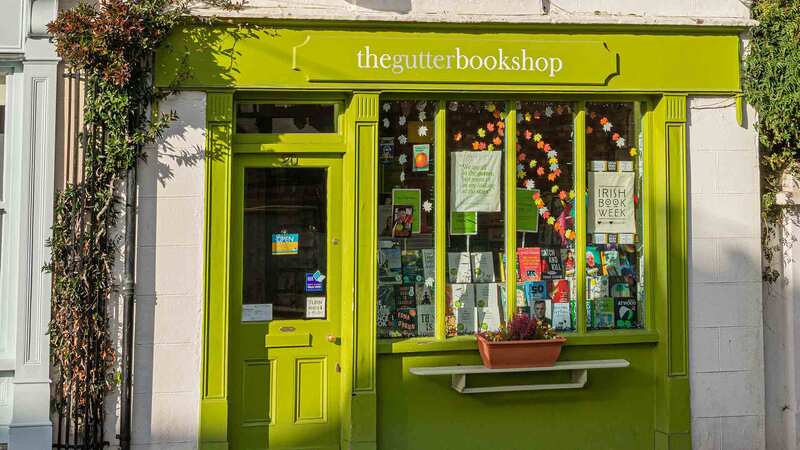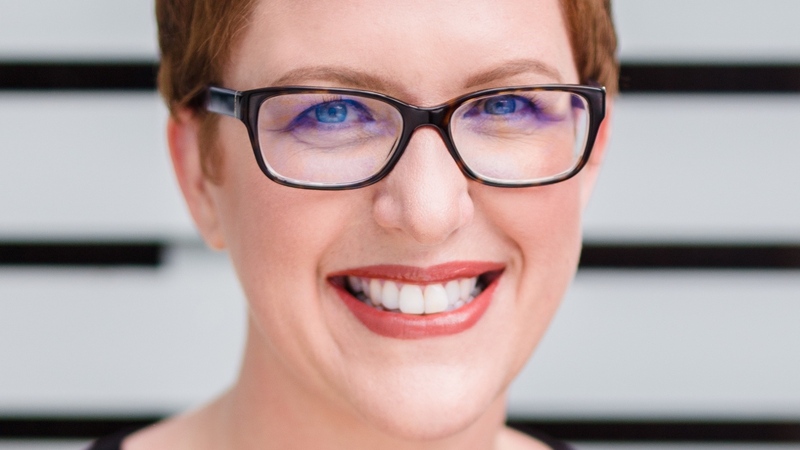Nine Bean Rows: smashing stereotypes and ripping up the cookery rule book
Cool beans: American emigré Kristin Jensen’s boutique publisher Nine Bean Rows is changing the story in Ireland’s food scene

Tom Tivnan is the managing editor of The Bookseller.
The name gives you the first clue and the accent confirms it: Kristin Jensen does not originally hail from Ireland. And while the native Chicagoan’s quarter-of-a-century living in Dublin has not much altered her flat Midwestern vowels, in the past four years Jensen has become a leading player on Ireland’s publishing scene with her boutique cookery specialist, Nine Bean Rows.
The origins of Nine Bean Rows starts with its sister imprint Blasta Books—and the pandemic. Jensen had forged a two-decade career in publishing, working first in-house then as a freelance editor for Irish and UK firms such as Octopus, Gill, Mercier Press and Collins, across cookery and education titles. But Ireland’s very strict lockdowns in 2020 gave her “time to pause and think”, which later coincided with the Black Lives Matter protests in the US.
She says: “I was sitting here in Ireland and some of the ripple effects [of BLM] were conversations around who’s represented in the media, whose voices are heard, whose stories are told.
“That got me thinking about my niche, and that I’ve been increasingly frustrated over the previous few years about the food world in Ireland.
“And maybe this was an outsider’s and immigrant’s perspective, but I just thought that we have so much talent and diversity—and so many exciting things going on in Irish cookery—but the reality of publishing is only the biggest names or the trendiest, most mainstream topics get the book deals. And that there had to be a better way.”
Another angle was “moving the needle forward” to reflect the 21st-century Irish food story. Jensen explains: “So many things are happening that people don’t associate with Ireland or Irish cookery, and we’re doing things that are just as cool and exciting as in London or New York.”
So in 2022, the first stream, Blasta, a small-format, beautifully designed quarterly series, was launched. “It’s a book list with a periodical vibe,” Jensen explains. She readily admits inspiration from the US-based publisher Short Stack Editions and titles from this side of the pond, such as the range Octopus publishes with the healthy fast-food chain Leon.
She says: “Cost was part of the model. The Blasta books are only 72 pages, so we don’t have the expense of the traditional 225-page cookery book. But with the format, and if we get the illustrations and the photography right, we would have a real point of difference.”
The reality of publishing is that only the biggest names or the most mainstream topics get the book deals. There had to be a better way
The series was a hit from the off. First in the seed money, which was in large part funded by a Kickstarter campaign that reached its target in just three days. Then at the tills, helped by favourable coverage in the foodie press, which ramped up a notch after the great and the good, including Nigella Lawson and Jamie Oliver, heaped social media praise on the series.
The first few books are representative of that untraditional Irish angle: Tacos, by Lily Ramirez-Foran, who runs Ireland’s first Mexican boutique grocer and cookery school, Dublin’s Picado Mexican; Hot Fat, a fried-food-themed title by Russell Alford and Patrick Hanlon, the duo behind the social media brand GastroGays; and Wok, from Hong Kong-born, Donegal-raised Kwanghi Chan. Nine Bean Rows then grew out of Blasta, with the latter in part acting as a sort of feeder club to the former. Jensen says: “I first thought that Blasta would essentially be a pathway to help our authors go on to be picked up by bigger houses. But then I thought: ‘Hold on, why should I hand them over to publishers who wouldn’t take a chance on them in the first place?’ So I inadvertently wound up with two imprints.”
The Nine Bean Rows side is slightly more traditional, too. For every genre-buster—like the just-published environmental food scientist Michelle Darmody and illustrator Ruth Graham’s children’s book looking at food production, From Seed to Supper—there are titles such as Ali Dunworth’s celebration of the pub culture and the craic, A Compendium of Irish Pints, which would not look out of place at, say, the till point at the Guinness Storehouse’s gift shop.
Incidentally, the Nine Bean Rows name comes from (and one could hardly get more Irish than this) the William Butler Yeats poem “The Lake Isle of Innisfree”: “I will arise and go now, and go to Innisfree/And a small cabin build there, of clay and wattles made/Nine bean-rows will I have there, a hive for the honey-bee/And live alone in the bee-loud glade.”
Ireland is multicultural and cosmopolitan; even more so than many Irish people realise
Jensen grew up in the suburbs of Chicago, later going to university in Wisconsin, where she met her part-Irish now-husband. An architect, he moved across to Dublin at the height of the Celtic Tiger, and she joined him in 1999 “for what I thought was going to be a year for a little adventure”. Jensen is now an Irish citizen and has lived longer in her adopted homeland than her native one.
She did not come from a foodie household—“it was the suburbs of Chicago in the 1980s and 1990s; the most exotic it got was fettuccine alfredo”—but she thinks that actually helped developing the list: “I studied English at university and I think I am more driven by the story behind food. The best food writing is when the food and the recipes are just another entry point into a story.”
As the company has established itself in Ireland, Jensen is working hard at building the brand further afield. She hired Emma Marijewycz of Alberto PR, which has led to a raft of coverage in Britain while, in May, she signed a distribution deal with Abrams & Chronicle to get the company’s titles into the UK, Europe, Middle East and Africa.
That international expansion dovetails neatly into Jensen’s original impetus for founding the company: changing perceptions.
“When people abroad think of Ireland, often it’s still this kind of really outdated, clichéd stereotype,” she says. “All that fairy tales, freckly redheads in Aran jumpers stuff. A view probably not helped by [the Martin McDonagh film] ‘The Banshees of Inisherin’ a couple years ago. And the clichéd perception of Irish food—like British food—is that it’s bland, overboiled and just really like not worth writing home about.
“And that is so not the case. Ireland is multicultural and cosmopolitan; even more so than many Irish people realise.”
Jensen pauses, then goes on: “We had a Blasta event with a panel discussion and there we were, a bunch of dual nationals: all Irish but also American, Mexican, Filipino… But we are a reflection of what modern Ireland is. Sure, we are having some of these protests here that match the ugliness of what you see in the UK or US where some people are looking backwards, trying to ring-fence what Irish identity is.
“But a country can be both multicultural and traditional. Because that’s where the richness lies.”













